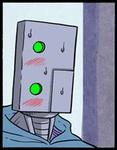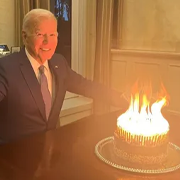|
I hate politicians.
|
|
|
|

|
| # ? May 26, 2024 17:09 |
|
It's really crazy to read this thread in one huge block and see the slow, creeping doom engulfing your country as goods disappear from stores, money becomes worthless, widespread electricity blackouts happen, and the ruling party robs the nation blind. Even if the opposition got elected, what would they do? How could they fix it?
|
|
|
|
Sergg posted:Even if the opposition got elected, what would they do? How could they fix it? It would take a very long time, and I am doubtful that it can even be done without full cooperation of everyone involved, but there is a way to get this country back on track within 2 years. It would imply IMF loans, months and months of real hardship, martial law and full militarization of slums and prisons just to be able to get the guns out of the street, full cooperation with the DEA to prosecute every single public officer involved in the drug trade, an aggressive and extensive expansion of the country's infrastructure to pave way for foreign trade and tourism, and after that incentives to stop the brain drain and bring capital back to the country. The biggest underlying issue is corruption, and it's subsequent erosion of the public's trust in the government and the law. A thief should fear prison, not other thieves. Of course, there is also the possibility that the military won't collaborate with using the shiny new toys Chavez' bought them to fight crime, but that shouldn't happen if the opposition has control over every branch of government.
|
|
|
|
My Imaginary GF posted:Christ, you don't loving funnel 100% of a contract to a shell, you take only 3-6% max. Less outright greed means more overall money to take a percentage off of. I can't remember exactly where I heard the anecdote (possibly a Singaporean  ), but a good joke: ), but a good joke:A freshly appointed Nigerian government minister visits a university friend of his in Indonesia, and is impressed by his friend's large mansion and three Cadillacs. "How did you afford this?" "See that road?" says the Indonesian politician, gesturing at the bustling road full of shops just down the way. "Ten percent." Some years later, the Indonesian visits his Nigerian friend, and is stunned by a much larger palace and a garage full of Ferraris. "I never thought you were this rich! What's your secret?" "See that road?" says the Nigerian politician, gesturing at a vast swathe of virgin, undisturbed forest. "One hundred percent."
|
|
|
|
If Capriles is once again called as a presidential candidate I would just not vote. The dude is pretty bad in his own right, I think, and I am not the only one that despises him. He had a chance to make more noise and fight for the county and HD just stepped back because it would've been bad for his career. He's taken a bunch of questionable decisions that benefit him and his party but do nothing for the country. Meanwhile Leopoldo marched straight to the Lion's den with the rest of Venezuela and turned himself in to try and become a symbol. Not to mention Capriles is highly religious, and openly uses his religious beliefs to take his decisions, and I just can't agree with that.
|
|
|
|
GreyjoyBastard posted:I can't remember exactly where I heard the anecdote (possibly a Singaporean I like this one, because it justifies limited corruption.
|
|
|
|
Sergg posted:It's really crazy to read this thread in one huge block and see the slow, creeping doom engulfing your country as goods disappear from stores, money becomes worthless, widespread electricity blackouts happen, and the ruling party robs the nation blind. Don't forget, it's all a CIA plot, and Maduro's criminal mismanagement of the country is all that's keeping them from taking over, as though that would be a bad thing at this point.
|
|
|
|
On a more apocalyptic note, my Schlumberger buddy tells me that they've now sent most of their employees on an indefinite leave. Schlumberger and Halliburton were picking up a lot of the slack from PDVSA so now they're expecting the output of crude to sink down. This is crucial because even at it's lower price, oil was still the lifeblood of the country. If the government can't even afford to pay its debts to the very companies keeping its only export alive, or those that are currently providing it with bills, on top of the Guri being a week away from reaching a critical low and being unable to generate most of the electricity keeping things going, we may be looking at an all out collapse scenario in the very near future. When the Guri collapses, it's going to bring down most of the country with it, with the exception of Caracas perhaps, which makes the MUD's strategy all the more insane. A recall referendum is all well and good, but the country isn't going to make it to the end of the year at its current state. On more Banana Republic notes, Maduro ordered for the electricity to be cut for the Assembly and lo and behold, they had no power today. His insane rants have reached new heights lately, as well, such as outright claiming that Uribe had seized multiple Colombian cities using paramilitaries on a cadena nacional. Dude is aiming for Kim Jong-un levels of insanity lately. Labradoodle fucked around with this message at 01:32 on Apr 30, 2016 |
|
|
|
There are already riots and lootings all over the country, once the Guri dam stops working it's going to be absolute chaos.
|
|
|
|
Christ I feel so helpless. Is there a charity we could contribute to to get people out of the country or could we set up some sort of fund to at least evacuate you guys?
|
|
|
|
This is the most existentially horrifying thread on the forums.
|
|
|
|
Kavak posted:Christ I feel so helpless. Is there a charity we could contribute to to get people out of the country or could we set up some sort of fund to at least evacuate you guys? Straight up no joke if you wanna help me out with trying to save up enough money for a plane ticket and rent contact me at thefnox@gmail.com , I think it's about time I swallow my pride and ask for help. Addendum: Footage of MUD's spokesman Chuo Torrealba being attacked by random chavistas on the street, all while threatening to shoot whoever tries to stop them https://www.youtube.com/watch?v=wnWdlRoTydU Bonus: This is what chavistas actually believe, this is a man who honest to god believes that the drought in Venezuela is caused by the CIA: https://www.youtube.com/watch?v=mtax4ipzh2U fnox fucked around with this message at 05:35 on Apr 30, 2016 |
|
|
|
Saladman posted:What's kind of interesting is even Zimbabwe was not so hosed that it could not pay its money printers to keep tacking on zeroes to the ends of the bills. On the plus side, since Maduro's government can't manage that, maybe the hyperinflation spiral will break down a few months sooner than it otherwise would? It seems that in another year or so, you will literally need a suitcase full of bills to buy a pizza. I can't imagine Maduro's government will do anything to restore people's faith in the bolivar either. Zimbabwe did sort of give up though and let citizens switch over to the dollar while things stabilized and while I am unsure if they started reprinting their own notes the currency market for Zimbabwean dollars has at least stopped getting worse. Hmm... maybe they can for once in their existence serve as a model nation in that regard...
|
|
|
|
the point of the skewed exchange rate was to subsidize the real price of imported goods. But there's no will to remove the subsidy and thereby make food and other essentials more expensive dollarization works by making a country's exposure to international prices much more apparent and harder to confabulate under a layer of hysterical pseudosocialist rhetoric, thereby discouraging the implementation of foolish policies. It does not, itself, achieve things. I will leave it up to you to speculate whether the Venezuelan government would enjoy an economic system whereby all organizations in society - from "spontaneous" Bolivarian collectives to Bolivarian missions - are measured by their ability to export things for hard currency or minimize their domestic use of hard currency
|
|
|
|
fnox posted:Straight up no joke if you wanna help me out with trying to save up enough money for a plane ticket and rent contact me at thefnox@gmail.com , I think it's about time I swallow my pride and ask for help. Hey man, much like people being forced to ask for hand-outs in the subway, pride will get you nowhere. I have friends that set up a GoFundMe to move to Spain and get married, and they actually got enough for the plane ticket. Of course they're kind of Tumblr stars so that helped. fnox posted:
I love how they go "the media lies to us because they serve political interests". My venegoons will agree with the term Cara e'tabla. Hugoon Chavez fucked around with this message at 10:19 on Apr 30, 2016 |
|
|
|
Cliff Racer posted:Zimbabwe did sort of give up though and let citizens switch over to the dollar while things stabilized and while I am unsure if they started reprinting their own notes the currency market for Zimbabwean dollars has at least stopped getting worse. Hmm... maybe they can for once in their existence serve as a model nation in that regard... Model nation, in that they've sold anything of value to the Chinese and their nation is back to being a colony, only without the paternalistic aspects of christianity?
|
|
|
|
fnox posted:Addendum: Footage of MUD's spokesman Chuo Torrealba being attacked by random chavistas on the street, all while threatening to shoot whoever tries to stop them https://www.youtube.com/watch?v=wnWdlRoTydU I just wanted to highlight this video. If you haven't seen it yet, please do so. Jesus "Chuo" Torrealba is the head of the Mesa de la Unidad Democratica. Yesterday, there was supposed to be a protest at the headquarters of the state-run electricity company, CORPOELEC. Demonstrators were unable to access the area en masse because state security forces prevent them from doing so, but Torrealba and a handful of local politicians still made it out to the building. At the beginning of the video, Torrealba is talking to some of these local politicians, when the man in glasses and a green shirt begins to approach Torrealba. As the man walks towards Torrealba, he says: quote:Que, maldito? Dependiente de que, maldito? Dependiente de que, mamaguevo? [Roughly, “drat you, what did you say? drat you, depending on what? Depending on what, you cocksucker?”] As you can see in the video, Torrealba begins to run away but is quickly overrun by at least four attackers. As this is going on, the man in glasses with the green shirt yells: quote:Metele plomo! Metele plomo! [literally, “Put lead in him!”, meaning “Shoot him!”] The man in glasses and green shirt is known to the opposition. He's been present at other violent attacks, as was the case on Tuesday when a pro-government group gathered to insult opposition deputies as they left the National Assembly. Here's a picture of that same man from the demonstration on Tuesday: 
|
|
|
|
Seeing as how there are multiple videos and pictures of the assault I'm sure our prosecutors will act swiftly and put that man in jail where he belongs, oh wait no this is Venezuela.
|
|
|
|
My Imaginary GF posted:Model nation, in that they've sold anything of value to the Chinese and their nation is back to being a colony, only without the paternalistic aspects of christianity? In the sense that things had been so much worse ten years ago, I suppose so.
|
|
|
|
Polar beer is closed. I remember reading that you guys said there was some kind of conspiracy against it?
|
|
|
|
Sergg posted:Polar beer is closed. I remember reading that you guys said there was some kind of conspiracy against it? Correct. Polar had four breweries pumping out 80% of the country's beer up until yesterday. The four plants went offline gradually throughout the week due to a lack of raw materials for production, with the last (and the largest) one shutting down yesterday. 10,000 jobs have been directly affected. Polar is the largest and most successful private enterprise in the country. It's long been a thorn at the side of the PSUV, because it flies in the face of everything the PSUV has to say about private industry (that it's parasitic, unproductive, inherently corrupt, etc.). Despite all the nonsense that's been happening in the country over the past 17 years, Polar has been able to continue to produce some products that are staples of the Venezuelan diet. Maduro and other high-ranking PSUV officials personally have it in for the head of Polar, Lorenzo Mendoza, who is a very popular figure and would likely make a relatively strong presidential candidate. Maduro calls him pelucon, which is a derogatory term that's supposed to play on the fact that he's rich because he's the CEO of this successful company. Anyway, the reason why Polar shut down its breweries is because the government simply stopped approving the company's requests to exchange dollars so that it could import raw materials for beer production. This appears to be a deliberate move on behalf of the government, because the Venezuelan Chamber of Beer Manufacturers (CAVEFACE) said on April 23 that Polar is the only brewer that is suffering from shortages. In other words, when you take the naked hatred that Maduro and the PSUV have for Polar and combine that with the fact that it is the only brewer in the country that had difficulties getting dollars from the government to import ingredients, it's not any kind of stretch to suggest that the government is likely purposely starving Polar into shutting down. The PSUV has done this kind of thing before with other industries. Most recently, El Carabobeño - a newspaper critical of the government which had been in circulation for 82 years - was forced to shut down in mid-March because the government stopped giving it dollars with which to import printing paper. Meanwhile, government-run newspapers and other publications have zero issues getting dollars/paper on time.
|
|
|
|
Fuuuuck I thought passports were good for 10 years but they are only good for 5 years and I just checked mine and it expires in June and my American visa expires in September so if poo poo hits the fan I can't even go there... Getting a new passport is almost impossible because they don't have materials to make new ones and even before the electricity problems started you had to wait like 3 months for an appointment, what a loving epic fail.
|
|
|
|
Earlier today, Henrique Capriles said that the opposition had collected approximately two million signatures, and appeared to hint that the signature drive would end now. It's possible that the opposition will hand the forms over to the Consejo Nacional Electoral (CNE) on Monday so that they can verify them. The CNE only requested approximately 197,000 signatures for this stage of the process. Maduro just gave a speech in which he said that the CNE was in fact not in charge of verifying the signatures, and that instead he had assigned a hand-picked team of PSUV politicians to check the signatures "one by one". Here's a video of his comments along with my translation below: quote:Maduro: … and, well, the Consejo Nacional Electoral – through some political groups – handed over a bunch of forms. I’ve assigned a special team from the Homeland Congress from the Gran Polo Patriotico [the name of the PSUV deputies in the National Assembly] and from the Partido Socialista Unido de Venezuela [PSUV], which will be coordinated by Dr. Jorge Rodriguez [the mayor of the Libertador municipality], so that when the time arrives they can examine all of the lists [of signatures] one by one, which the oligarchy and the right-wing will hand in [to the CNE]. In other words, after a seven month verification process, the PSU-- err, the CNE will find that the opposition did not collect enough signatures to get the referendum process started.
|
|
|
|
El Hefe posted:Fuuuuck I thought passports were good for 10 years but they are only good for 5 years and I just checked mine and it expires in June and my American visa expires in September so if poo poo hits the fan I can't even go there... Get out now.
|
|
|
|
Demiurge4 posted:Get out now. I think it would be downright impossible to find a plane ticket scheduled before June. Not only that but most countries wouldn't let you enter with a passport so close to expire.
|
|
|
|
Hugoon Chavez posted:I think it would be downright impossible to find a plane ticket scheduled before June. That's why you just slum it out in the international lounge and apply for asylum.
|
|
|
|
El Hefe posted:Fuuuuck I thought passports were good for 10 years but they are only good for 5 years and I just checked mine and it expires in June and my American visa expires in September so if poo poo hits the fan I can't even go there... what happens if you go to Bogotá and lose your passport? Are those temporary ones they give you at embassies abroad only valid for returning to your home country? Even if you can't go to the U.S., the Venezuelan passport is honestly a pretty good one.
|
|
|
|
Hugoon Chavez posted:I think it would be downright impossible to find a plane ticket scheduled before June. Yeah this is the thing. Btw because of the power rationing one of the biggest shopping malls in the country closed yesterday, Sambil Maracaibo, about 2500 people are gonna lose their job and hundreds of small and medium business are going to be in even deeper poo poo than they were before.
|
|
|
|
Employment is just the exploitation of your surplus value by the bourgeoisie. Another victory for socialism!
|
|
|
|
Here's a more balanced look at the power outages situation http://www.coha.org/venezuelas-outages-and-the-western-presss-confirmation-bias-problem/ quote:Recent reports about Venezuela’s ongoing infrastructural difficulties have given particular attention to such matters as electrical grid outages, which are said now to be chronic across the country. Much has been made, for instance, of President Nicolás Maduro’s announcement this month that his government is implementing a three-day weekend to conserve energy resources.[1] Similarly, increasing attention has been given to the water shortage, which is said to be leaving Venezuelans without access for weeks on end.
|
|
|
|
This is what Minister of Electrical Energy Luis Motta Dominguez said about the energy crisis in the country back on February 19, 2016, as reported by Venezuelan state-owned media: quote:Minister Motta Dominguez warns that there will be an electricity collapse in mid-April unless measures and [reduction measures] are taken on time. Poor Dominguez! I guess he bought into the "the electrical grid might collapse soon" nonsense that CNN has been spinning. Also, this whole argument is just quote:It is important to remember that countries like Venezuela, which never really industrialized so they could join the ranks of “developed” nations, don’t have all of the luxuries that the “first world” has, and therefore sometimes have to set different priorities as societies that are not easily understood from the outside, and therefore easily misconstrued. Quit your whining, Venegoons, and get back in your mud huts! We in the First World also had lots of blackouts back about 100 years ago when we were figuring out this whole electricity thing. In a few more decades and once you've taken more steps forward into modernity you'll have it all worked out, I'm sure. On a related note: El Nacional reports that there have been 8,250 disruptions to electrical service in the country so far in 2016, compared to a total of 12,966 in all of 2015. That means that Venezuela's 64% of the way there to breaking a record!
|
|
|
|
quote:First, almost all of them seem to assume unthinkingly that anything bad that happens in Venezuela must somehow be the government’s fault. The idea that there might be other legitimate explanations or that forces outside the government might deserve full or partial blame is often either ignored or automatically discounted as a desperate rationalization of the government to deflect from its own incompetence. What we see here is a self-justifying loop: something bad happens in Venezuela, therefore its government is incompetent, all alternate explanations are just attempts by the government to divert blame, thereby proving that it is incompetent. In critical thinking theory, this is called a closed system of thought since it has its own internal mechanisms to explain away conflicting evidence. In other words, since the view that the entire Chavista project has been a failure is taken as the starting point, all problems experienced in the country are made to fit that conclusion.
|
|
|
|
quote:Several Weeks ago, COHA published an analysis of the Venezuela-Guyana boundary dispute by guest scholar Eva Golinger quote:guest scholar Eva Golinger quote:scholar Eva Golinger
|
|
|
|
Borneo Jimmy posted:Here's a more balanced look at the power outages situation More balanced look than the one people actually going trough it are giving! It came from wikipedia: Eva Golinger edits the Correo del Orinoco International, a web- and print-based newspaper which is financed by the Venezuelan government. Golinger is also a member of the Venezuelanalysis.com team. Now if that's not a balanced look and neutral person, I don't know who is!
|
|
|
|
She also believes Chávez was murdered. Golinger is insane.
beer_war fucked around with this message at 20:02 on May 1, 2016 |
|
|
|
Borneo Jimmy posted:Here's a more balanced look at the power outages situation It cites power outages in Cartagena and for 190k people in Argentina. That's pretty bad, but they're also both small (but of course significant) percentages of the population. Venezuela's power outages are affecting like nearly 100% of the population. A power outage affecting 30 million people daily for months in Argentina would make people say "WTF Macri" too. That article, while on the surface makes sense, utterly falls apart when you look at the difference in magnitude of the recent failures of Colombia and other Latin American governments, vs. that of Venezuela. I think Lebanon is the only other reasonably-developed not-war-torn country I hear about that is as massively dysfunctional as Venezuela currently is.
|
|
|
|
Saladman posted:I think Lebanon is the only other reasonably-developed not-war-torn country I hear about that is as massively dysfunctional as Venezuela currently is. I wouldn't say Lebanon isn't war-torn. Israel-Hezbollah war in 2006 hosed up infrastructure across the country and the damage from the 1975-1990 Civil War is still evident everywhere. With Syria next door it's all relative though.
|
|
|
|
There’s a kind of (perhaps not so)subtle patronizing that is evident in pieces like the one Jimmy copied and pasted, and in the theories that people like Golinger and other non-Venezuelan academics throw around about what’s happening in Venezuela. I’m not saying that Venezuelans don’t do this either, but it’s especially evident in the work of some these PSUV supporters from abroad. The phenomenon I’m talking about shows itself in the way that these people frame their views on the situation in the country. It involves the United States (and other external factors), and it looks roughly like this: “Nothing happens in Venezuela unless the United States is involved”. This framework starts off from the assumption that Venezuelans are too incompetent/backward/complacent/inept/incapable of doing anything on their own. This goes for both things that are good and bad. The framework makes sense of everything that happens in the country only through the introduction of some foreign element, usually the United States. The electricity crisis isn’t the result of corrupt government officials and years of mismanagement: it’s US-backed saboteurs and the climate. The opposition collecting millions of signatures in three days for a recall referendum isn’t an example of impressive political organization and a tremendous enthusiasm for the democratic process: it’s a US-backed smear campaign that gullible Venezuelans have bought into. You see hints of this framework in the article that Jimmy copied and pasted. That piece only makes sense if you ignore the lived experiences of Venezuelans. The article is essentially arguing that these lived experiences are some kind of mirage, and that what we hear about is actually what the Western media and the US-backed opposition wants us to hear. It completely belittles the everyday experiences of people who live in Venezuela and actually put up with these issues. It’s your “cognitive bias” that are tricking you, Venegoons, into thinking that the PSUV is doing a poor job at running the country. In other words, expressing outrage or criticism of the PSUV is actually a sign that you’ve bought into the Western media smear campaign. A more extreme example of this is evident in Golinger’s theory that the DEA/CIA killed Chavez. Golinger’s theory stands in defiance to what is arguably the most natural of all events: death. With nothing but the flimsiest circumstantial evidence, Golinger has convinced herself – and others who share this patronizing framework – that Chavez could not possibly have died as a result of natural occurrences. Cancer is a disease that kills millions of people in the world each year. Yet, Golinger’s theory tells us, “No – this human being could not possibly have died of cancer, as millions of human beings do each year. The United States killed him”, as if to say that a Venezuelan can’t even die without the United States being involved somehow.
|
|
|
|
Maduro just gave an absolutely bonkers speech outside of the Miraflores Palace in Caracas. He was supposed to march down with the crowd to a nearby plaza, but said that they had scrapped that plan because the government had discovered an assassination attempt and that "dozens have been arrested". He provided no evidence for any of this, as per usual, but the implication is that the assassination would have happened today. He also ordered his supporters to launch a rebellion quote:If the oligarchy ever did something to me and managed to get into this [Miraflores] Palace by one way or another, I order you to declare yourselves in rebellion and to declare an indefinite EDIT: I mistakenly read Maduro's words as "huelga de hambre" (hunger strike) instead of "huelga general" (general strike). I apologize for this error. Here are some pictures from his speech outside Miraflores earlier today:   One of the signs at the rally was a drawing of Maduro brutalizing National Assembly President Henry Ramos Allup: 
Chuck Boone fucked around with this message at 12:52 on May 2, 2016 |
|
|
|

|
| # ? May 26, 2024 17:09 |
|
I wonder what sort of brain disease you must have to live in this country, not be on their payroll, but still somehow keep supporting the PSUV.
|
|
|


















